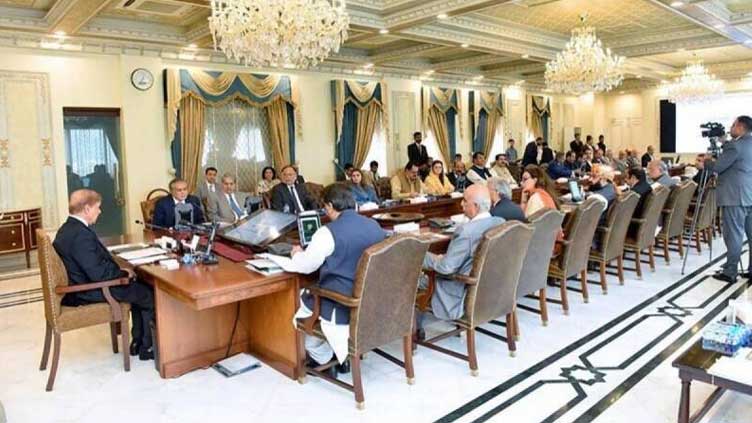Cabinet gives nod to National Clean Air Policy

Pakistan
Cabinet gives nod to National Clean Air Policy
ISLAMABAD (Dunya News) – The federal cabinet presided over by Prime Minister Shehbaz Sharif on Thursday approved Pakistan’s first National Clean Air Policy.
The Ministry of Climate Change briefed the cabinet meeting on the policy. In 2021, Pakistan was among the three most polluted countries in the world, while Karachi and Lahore are among the most polluted cities in the world.
During the briefing, it was further informed that air pollution had become a big problem in Pakistan and 235,000 deaths were reported due to air pollution in 2019. “Air pollution has reduced life expectancy in Pakistan and the problem of smog in winter has also become dangerous,” the cabinet informed.
The participants in the meeting were also told that the National Clean Air Policy would help in reducing air pollution in the country. A National Action Committee would be formed under the policy and a technical committee would provide support to the committee.
Later, in a series of tweets, Federal Minister for Climate Change Senator Sherry Rehman thanked all the cabinet members for unanimously approving the policy.
Sherry Rehman said: “This policy was the need of the hour which has been formulated in consultation and partnership with all stakeholders. It aims to reduce air pollution in Pakistan, improve air quality, reduce annual deaths, improve citizens’ health, increase economic activity and ensure food security.”
She said Pakistan was the third most polluted country in the world in terms of air pollution in 2021, while Lahore and Karachi were the most polluted cities in Air Quality Index 2022-23.
— SenatorSherryRehman (@sherryrehman) March 9, 2023
“Air pollution has become a serious environmental and health problem. In 2019, 235,000 people died due to air pollution in Pakistan.”
The minister noted that air pollution had shortened the average life expectancy in Pakistan by 2.7 years.
According to the World Bank, she said, air pollution in 2013 caused an economic loss of $47.8 billion in Pakistan, which was 5.88% of the GDP (gross domestic product).
— SenatorSherryRehman (@sherryrehman) March 9, 2023
“We needed a comprehensive policy to reduce these losses. All losses can be mitigated by the technical and administrative measures of this policy,” Sherry Rehman said.

